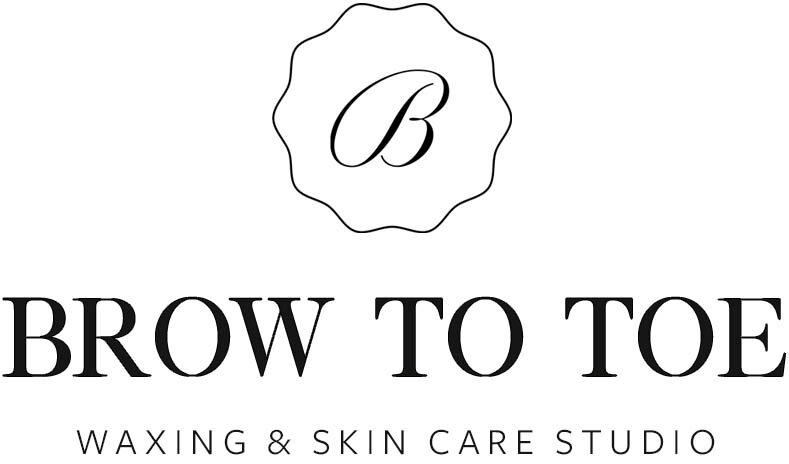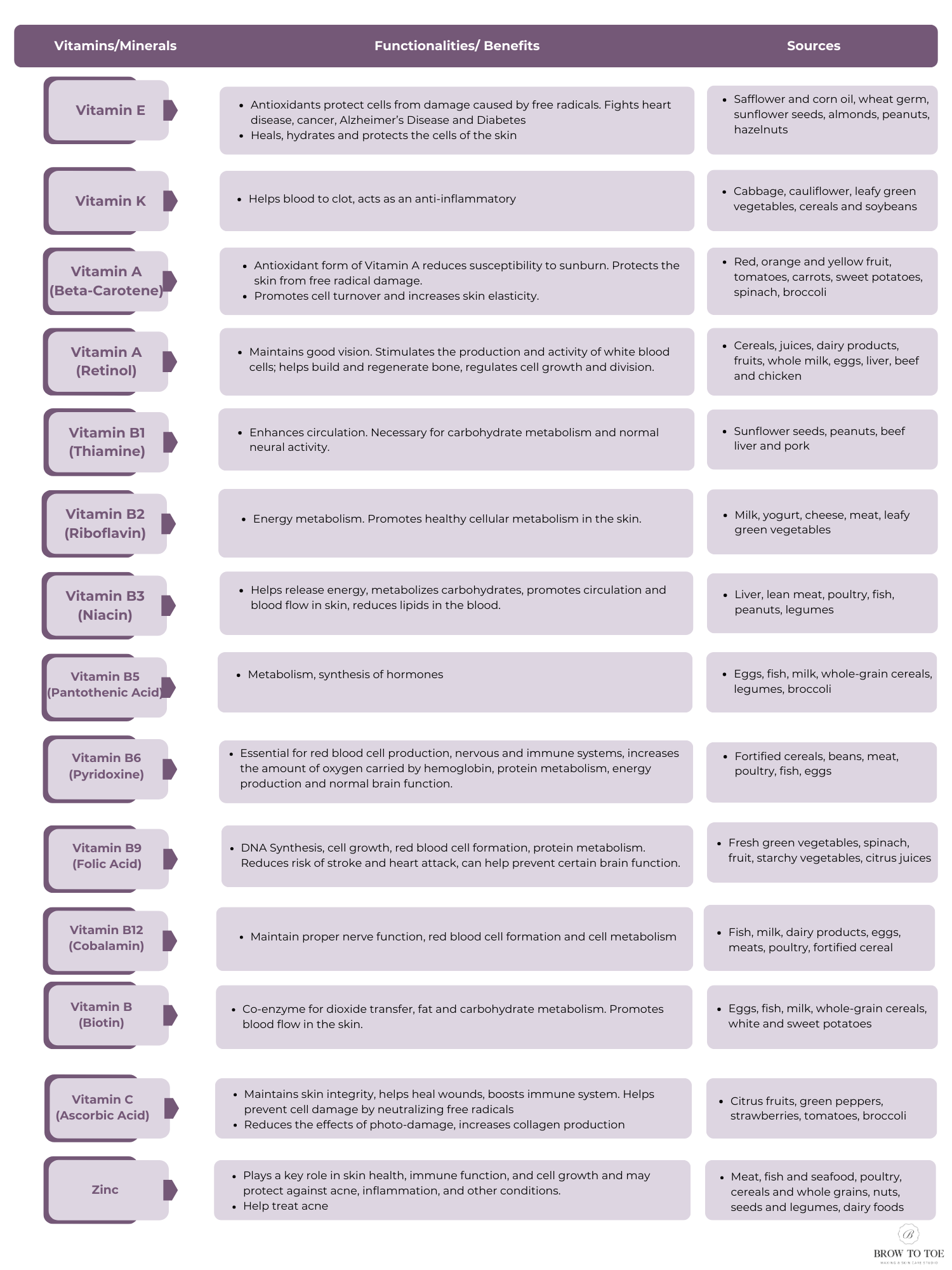From Plate to Skin: The Role of Nutrition in the Appearance of Your Skin
From Plate to Skin: The Role of Nutrition in the Appearance of Your Skin
You may turn to a dermatologist or esthetician for products or treatments to solve many skin conditions; however, the age-old saying, "You are what you eat," rings true regarding the appearance of your skin. The truth is that great skin often starts from within, and ignoring this fact can slow down your progress or have you on a roller coaster ride of ups and downs with your skin.
Gut health and skin health often go hand in hand, which is why the food you consume plays a bigger role in the appearance of your skin than any topical cream or treatment. As someone who experienced skin issues like acne for years, I have seen firsthand how clean eating has not only controlled my acne over the past year but has helped with the overall tone, texture, and hydration of the skin. Like your skincare routine, consistency is key when it comes to diet, and it often takes 2+ months to reap the skin benefits of eating healthily.
In this blog, you will read about the relationship between diet, how it can contribute to or improve some skin conditions, and the recommended vitamins and food sources ideal for healthy skin.
The Connection Between Diet and Aging Skin
The Connection Between Diet and Aging Skin
As you age, your skin produces less collagen and elastin, two essential proteins that keep your skin firm and elastic. Unfortunately, eating a poor diet can negatively impact the health of your skin's cells. Two culprits are free radicals and inflammation. Free radicals are unstable molecules that damage healthy skin cells, leading to the appearance of fine lines and wrinkles. Inflammation is your body's natural response to injury or infection. However, chronic inflammation caused by an unhealthy diet can break down collagen and elastin in your skin. Believe it or not, the food you eat can either accelerate or delay the signs of aging. Processed foods, sugar, dairy, and alcohol can cause inflammation in the body, ultimately leading to wrinkles and other signs of aging.
On the other hand, eating antioxidant-rich foods such as berries, leafy greens, and nuts can help neutralize free radicals that can damage skin cells and accelerate the aging process. Hydration is also essential in maintaining youthful skin since water helps flush out toxins and keeps skin tissue plump and elastic.
The Relationship Between Diet and Acne
The Relationship Between Diet and Acne
Acne is a common skin condition that affects individuals of all ages. Research has established a link between high glycemic index foods and acne. Your diet could be a significant contributing factor to acne. Consuming diets that are high in sugar, dairy, and processed foods increases insulin levels, which, in turn, causes your sebaceous glands to produce more oil, contributing to acne. By avoiding sugary foods and eating a balanced diet rich in vegetables, fruits, and lean protein like fish and chicken, one can control acne breakouts.
The Relationship Between Diet and Eczema
The Relationship Between Diet and Eczema
Eczema is a chronic inflammatory skin condition that causes redness, itching, and flaking. While eczema is typically treated topically, the role of diet cannot be ignored. Certain foods can trigger inflammation in the body and worsen eczema symptoms. Common food triggers for eczema sufferers include dairy, eggs, soy, wheat, and nuts. A varied, nutrient-dense diet can help prevent nutrient deficiencies that can exacerbate eczema symptoms. To reduce your risk of eczema, try eating a varied diet that includes a range of fruits, vegetables, whole grains, and lean protein sources.
The Relationship Between Diet and Rosacea
The Relationship Between Diet and Rosacea
Rosacea is a chronic inflammatory skin condition that causes facial redness, flushing, and bumps. Like eczema, certain foods can trigger inflammation and worsen rosacea symptoms. Common food triggers for rosacea sufferers include spicy foods, alcohol, caffeine, and dairy. Incorporating more anti-inflammatory foods such as green leafy vegetables, berries, and fatty fish can help prevent and manage rosacea symptoms. By managing your diet, you can better control your rosacea symptoms.
Key Vitamins and Minerals for Good Skin Health
In addition to eating various healthy foods, it’s also important to get the key vitamins and minerals necessary for good skin health. Below are some important vitamins/sources for skin health:
Key Vitamins and Minerals for Good Skin Health. Information courtesy of Salon Fundamentals, 2004
If you’re concerned that you’re not getting enough of these nutrients from your diet alone, talk to your doctor about whether supplementation may be necessary.
Frequently Asked Questions I Get About Diet and Skin
I eat the same foods as my blood relatives, but they don’t have the same issues, are you sure it is the food?
It is possible that genetics play a role in how our bodies react to certain foods. Other factors such as lifestyle, environment, food intolerances, allergies, and gut microbiome can vary from one person to the next.
Eating healthy seems hard, where should I start for the best results?
If you are dealing with inflammatory conditions like acne, eczema, or rosacea, it may be a good idea to consult with a doctor to identify any food allergies or sensitivities to determine what you need to get rid of first or what you shouldn’t add to your diet. Otherwise, I found cutting out sugar and dairy seemed to be a good starting point for myself and other clients.
How long do I have to stick to clean eating?
Clean eating is a lifestyle choice, not a diet. If healthy habits become routine, the benefits will continue indefinitely. However, it's okay to indulge occasionally. With that being said, feel free to ease into this new lifestyle. You will find that eating healthily may require more planning and preparation on your end. As well as, adjusting other habits and schedules.
Skincare is more than just products and treatments. The food we consume impacts every part of the body, including the skin, and can contribute to or manage skin conditions. We can achieve healthy skin that glows from the inside out through healthy eating. Making small changes in our diets can significantly impact skin health, and it is about time that we take the necessary steps to feed our skin with the right nutrients. As the saying goes, "You are what you eat"” So, let's nourish the skin inside out and restore the natural radiance of our skin.
Medical Disclaimer:
The information provided on this blog is for general informational purposes only and is not intended as, nor should it be considered a substitute for, professional medical advice. Do not use the information on this website for diagnosing or treating any medical or health condition. If you have or suspect you have a medical problem, promptly contact your professional healthcare provider.






